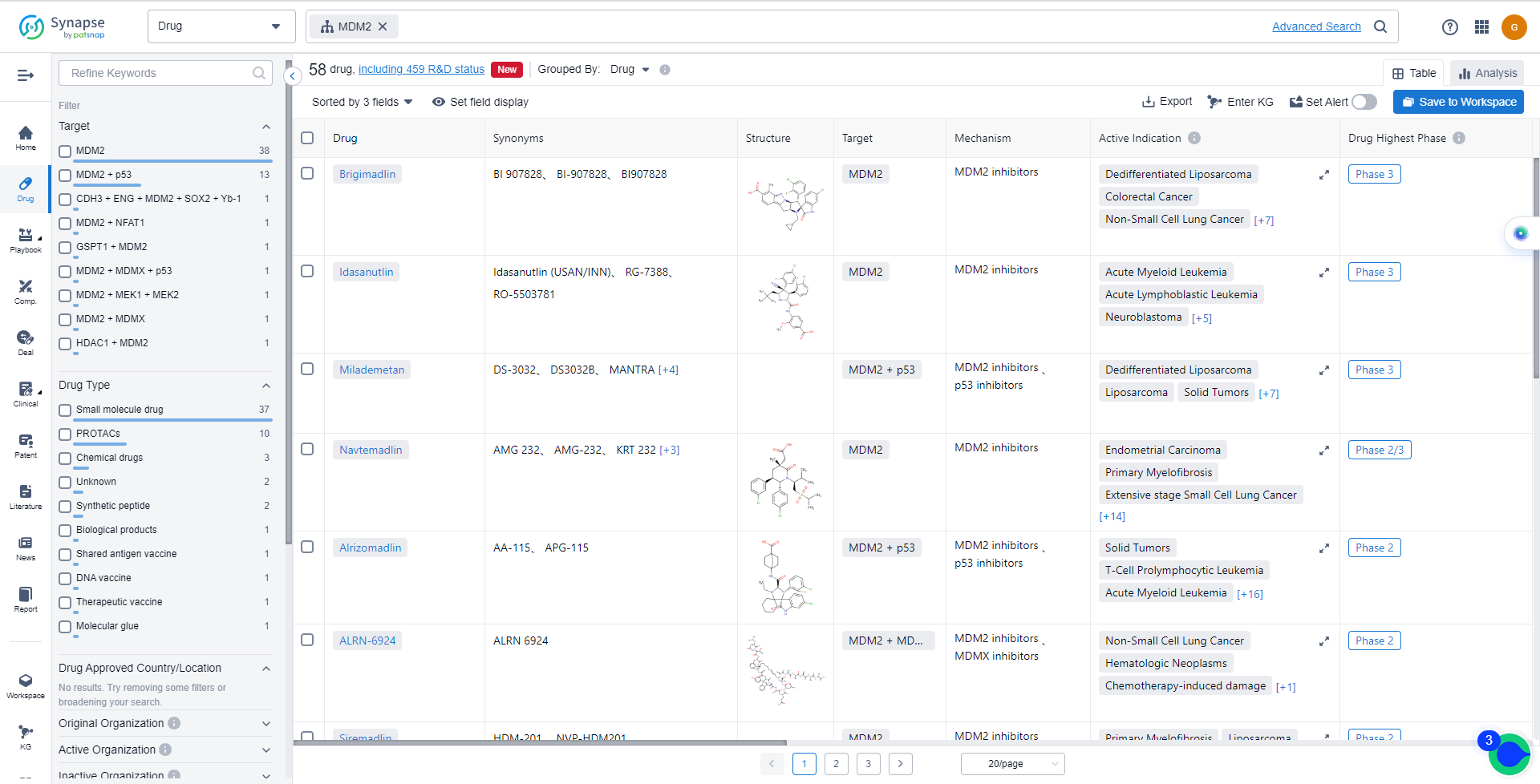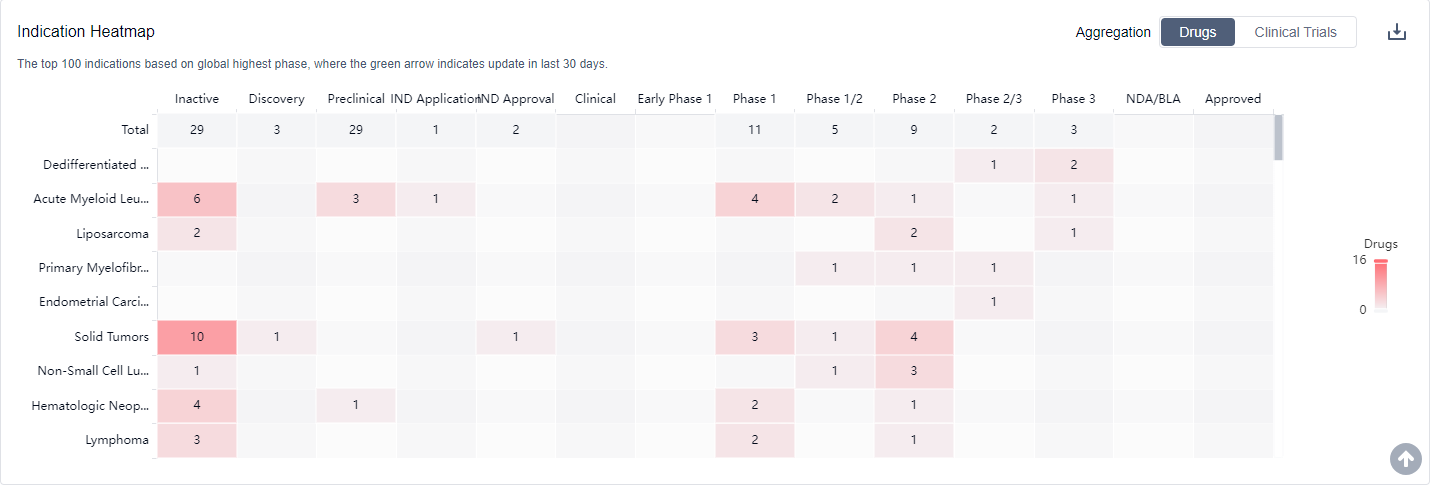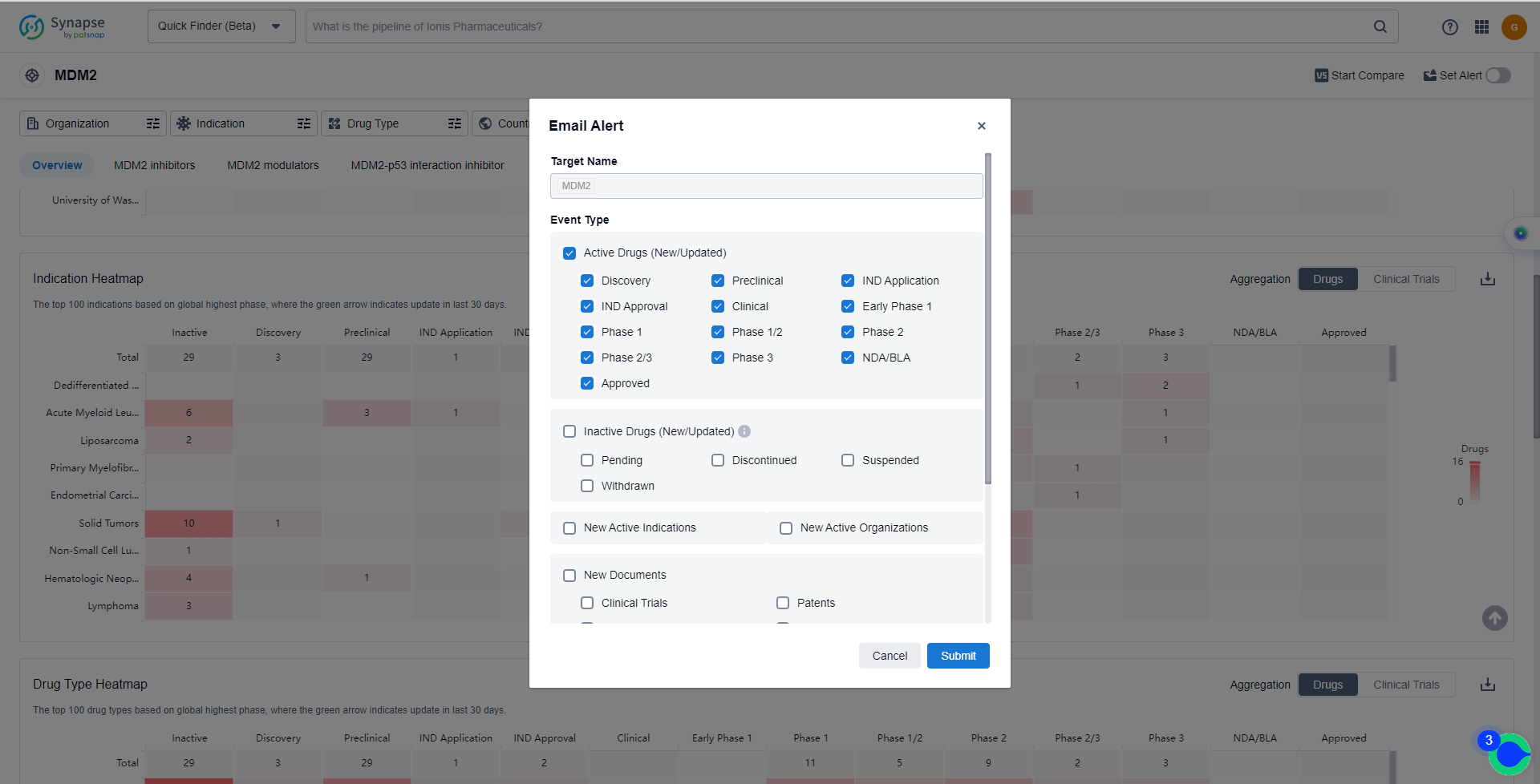Deciphering MDM2 Inhibitors and Keeping Up with Their Recent Developments
MDM2 is a crucial protein found in the human body that plays a significant role in regulating cell growth and division. It acts as a negative regulator of the tumor suppressor protein p53, which is responsible for preventing the formation of cancerous cells. MDM2 binds to p53, inhibiting its activity and promoting its degradation, thereby preventing excessive cell growth and maintaining cellular homeostasis. Additionally, MDM2 also has p53-independent functions, such as regulating DNA repair and apoptosis. Understanding the role of MDM2 is essential in developing targeted therapies for cancer treatment and exploring its potential as a therapeutic target in various diseases.
Over the past few decades, the development of small molecule inhibitors that interfere with MDM2-p53 interactions for cancer treatment has attracted widespread attention from researchers. The co-crystal structure of the MDM2-p53 complex shows that MDM2 mainly interacts with p53 through three key residues (Leu26, Trp23, and Phe19), providing a structural basis for the rational design of small molecule MDM2 inhibitors. To date, many efficient and selective small molecule MDM2 inhibitors have been discovered. The co-crystal structure shows that these MDM2 inhibitors mostly occupy the three key residues (Leu26, Trp23, and Phe19) and form additional interactions with MDM2, such as hydrophobic or electrostatic interactions. The binding affinity of these small molecule MDM2 inhibitors to MDM2 is more than 1000 times that of p53. These inhibitors effectively inhibit MDM2-mediated p53 ubiquitination and degradation by blocking MDM2-p53 interactions, ultimately leading to an increase and activation of p53 in tumor cells with wild-type p53, but not in tumor cells with p53 deletion or mutation. Therefore, they significantly inhibit the growth of wild-type p53 cancer cells and show significant selectivity for cancer cells with mutated or deleted p53. These MDM2 inhibitors in the clinical stage also show good pharmacokinetic properties and show great therapeutic potential in cancer treatment.
The analysis of the target MDM2 reveals a competitive landscape with multiple companies actively involved in the development of drugs. Roche Holding AG, C.H. Boehringer Sohn AG & Co. KG, and Rain Oncology, Inc. are the companies with the highest development phases. The indications with the most advanced drugs include Dedifferentiated Liposarcoma, Acute Myeloid Leukemia, and various other solid tumors and hematologic neoplasms. Small molecule drugs are progressing rapidly, indicating intense competition, while synthetic peptides and PROTACs are also being developed as biosimilars. The United States, European Union, and Australia are the leading countries/locations in terms of development, with China also making progress. The future development of the target MDM2 is expected to witness further advancements in R&D and potential approvals for relevant indications.
How do they work?
MDM2 inhibitors are a type of drug that target the MDM2 protein, which plays a crucial role in regulating the tumor suppressor protein called p53. In normal conditions, MDM2 binds to p53 and promotes its degradation, preventing it from exerting its tumor-suppressing functions. However, in some cancer cells, the MDM2 protein is overexpressed, leading to the inhibition of p53 and allowing the cancer cells to proliferate uncontrollably.
MDM2 inhibitors work by blocking the interaction between MDM2 and p53, thereby preventing the degradation of p53 and restoring its tumor-suppressing activity. By inhibiting MDM2, these drugs can help restore the normal function of p53 and promote cell cycle arrest, DNA repair, and apoptosis (programmed cell death) in cancer cells. This ultimately leads to the suppression of tumor growth and potentially improved outcomes for cancer patients.
From a biomedical perspective, MDM2 inhibitors are a promising class of drugs in the field of cancer therapy. They hold potential for the treatment of various types of cancers, particularly those with p53 pathway dysregulation. Ongoing research and clinical trials are focused on developing and optimizing MDM2 inhibitors as targeted therapies to improve cancer treatment options.
List of MDM2 Inhibitors
The currently marketed MDM2 inhibitors include:
For more information, please click on the image below.
What are MDM2 inhibitors used for?
MDM2 inhibitors are a promising class of drugs in the field of cancer therapy. For more information, please click on the image below to log in and search.
How to obtain the latest development progress of MDM2 inhibitors?
In the Synapse database, you can keep abreast of the latest research and development advances of MDM2 inhibitors anywhere and anytime, daily or weekly, through the "Set Alert" function. Click on the image below to embark on a brand new journey of drug discovery!








